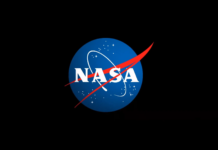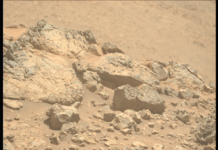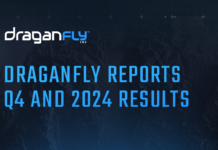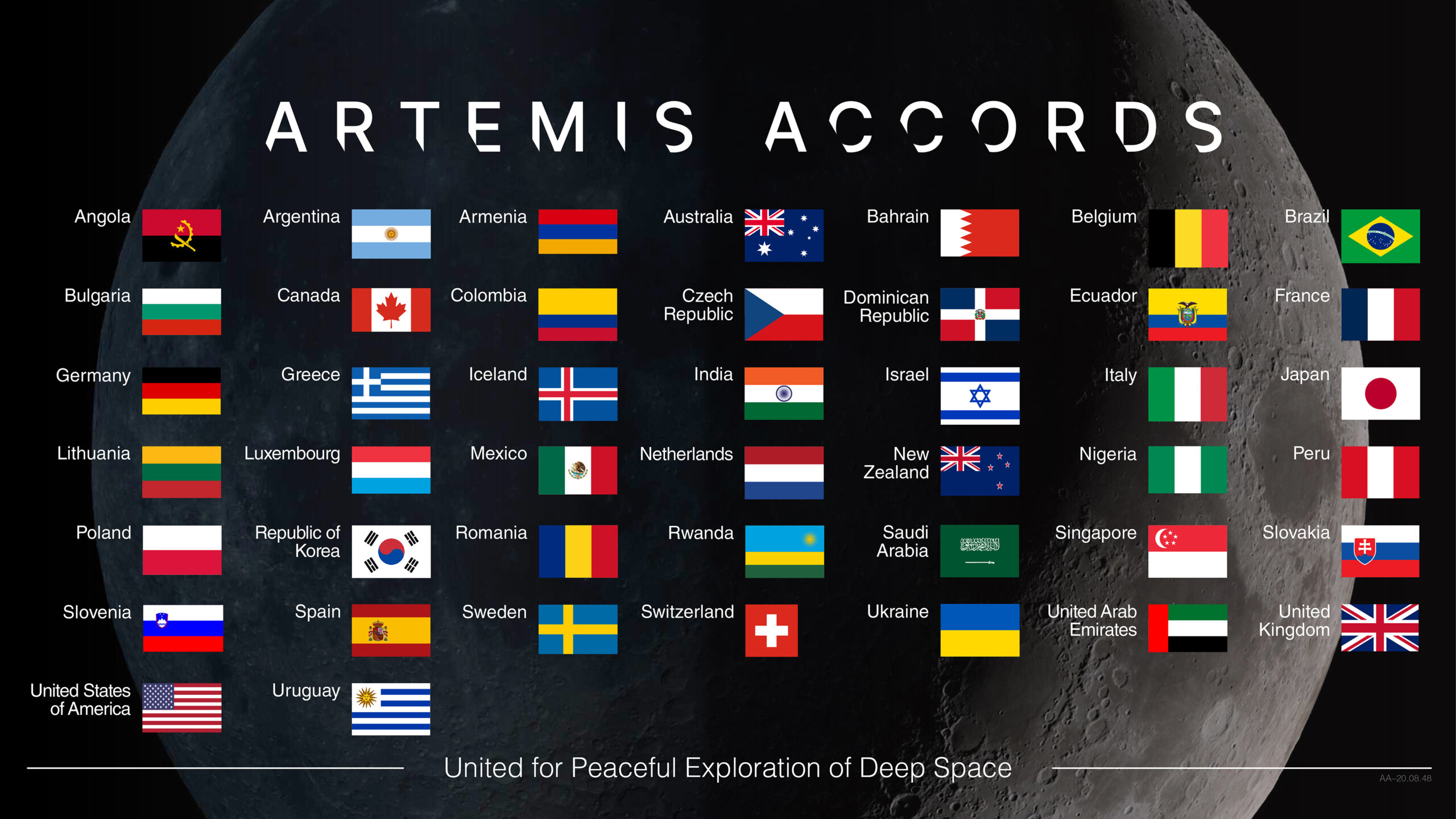Dominican Republic Embraces the Future of Space Exploration by Joining the Artemis Accords
In a significant move towards international collaboration in space exploration, the Dominican Republic has become the latest country to sign the Artemis Accords. This makes it the 44th nation to align with the principles that aim to ensure the safe, transparent, and responsible exploration of outer space, including missions to the Moon, Mars, and beyond, in cooperation with NASA.
NASA Administrator Bill Nelson expressed pride in welcoming the Dominican Republic to the growing list of countries committed to these accords. Nelson emphasized that the participation of the Dominican Republic marks an important step towards a future of peaceful space exploration that includes all nations. "The Dominican Republic has taken significant strides towards a shared future in space and is now playing a role in guiding space exploration for what we call the Artemis Generation," Nelson noted.
The formal signing of the Artemis Accords was conducted by Sonia Guzmán, who serves as the ambassador of the Dominican Republic to the United States. This event took place on October 4th, and it underscores the Dominican Republic’s dedication to international cooperation in space endeavors. The nation is also set to confirm its involvement in an upcoming high-level meeting of Artemis Accords signatories scheduled for October 14th, during the International Astronautical Congress in Milan. This meeting will focus on furthering the implementation of the principles outlined in the accords.
Sonia Guzmán highlighted the significance of this development, stating that it represents a historic step in the Dominican Republic’s commitment to global collaboration in space exploration. "This is not merely a scientific or technological milestone," Guzmán explained. "It symbolizes a future where the Dominican Republic contributes to the shared goals of peace, sustainability, and innovation beyond our planet. By joining the global effort to explore the Moon, Mars, and beyond, we are also opening up new opportunities, particularly for our young Dominicans, in the fields of science, education, and economic development."
The Artemis Accords, first introduced in 2020, were initially signed by the United States and seven other nations. These accords outline a set of guiding principles aimed at promoting the beneficial use of space for all of humanity. They are based on the framework of the Outer Space Treaty, along with other key agreements like the Registration Convention and the Rescue and Return Agreement. The accords also incorporate best practices and norms of responsible behavior that NASA and its partners have long advocated for, such as the public release of scientific data.
Understanding the Artemis Accords
To better comprehend what the Artemis Accords entail, it’s important to delve into their foundational principles. At their core, the accords are designed to facilitate peaceful and cooperative endeavors in space exploration. Some of the key principles include:
- Peaceful Exploration: Signatories commit to conducting space activities for peaceful purposes, in accordance with international law.
- Transparency: Countries agree to share information about their space policies and plans in a transparent manner.
- Interoperability: The accords encourage the development of systems that can work together, ensuring that different countries’ technologies can operate in harmony.
- Emergency Assistance: Participating nations commit to providing assistance to astronauts in distress.
- Preservation of Heritage: The accords advocate for the protection of sites and artifacts with historical significance, such as lunar landing sites.
- Space Resource Utilization: The accords recognize the rights of countries to use space resources, but emphasize the need for sustainable and responsible practices.
- Deconfliction of Activities: Nations agree to avoid harmful interference with each other’s space activities.
- Orbital Debris and Spacecraft Disposal: Signatories commit to minimizing space debris and ensuring safe disposal of spacecraft.
These principles align with the broader aims of the Outer Space Treaty, which serves as the fundamental legal framework for international space law. By adhering to these principles, the signatories of the Artemis Accords aim to create a safe and sustainable environment for future space exploration.
The Growing Importance of International Collaboration
The inclusion of the Dominican Republic in the Artemis Accords underscores the growing importance of international collaboration in space exploration. As more countries join this initiative, the collective efforts to explore outer space become stronger and more diverse. This diversity not only enhances the scientific and technological capabilities of the participating nations but also fosters a spirit of unity and shared purpose.
The commitment to international cooperation is particularly crucial as humanity sets its sights on ambitious goals such as establishing a sustainable presence on the Moon and preparing for manned missions to Mars. These endeavors require significant resources, expertise, and coordination, making collaboration between nations an essential component of success.
Moreover, the participation of countries like the Dominican Republic in the Artemis Accords reflects a broader trend of increasing interest in space exploration among nations that may not have previously been at the forefront of such activities. This trend is driven by the recognition of the potential benefits that space exploration can bring, not only in terms of scientific discovery but also in areas such as education, economic development, and national pride.
The Road Ahead for the Dominican Republic
For the Dominican Republic, joining the Artemis Accords represents a new chapter in its journey towards becoming an active participant in the global space community. This move opens up a wide range of opportunities for the nation, particularly in the fields of science, technology, engineering, and mathematics (STEM). By engaging in space exploration, the Dominican Republic can inspire and empower its youth to pursue careers in these fields, thereby contributing to the country’s overall development and progress.
The signing of the Artemis Accords also positions the Dominican Republic as a key player in the ongoing efforts to ensure the responsible and sustainable exploration of space. As part of this global initiative, the country will have the opportunity to collaborate with leading space agencies and organizations, sharing knowledge and expertise to address common challenges and achieve shared goals.
In conclusion, the Dominican Republic’s decision to sign the Artemis Accords marks a significant milestone in its journey towards becoming a prominent contributor to international space exploration. This move not only aligns the country with the principles of peaceful and responsible space activities but also underscores its commitment to fostering a future where all nations can benefit from the vast opportunities that space exploration has to offer. As more countries join the Artemis Accords, the collective efforts to explore the Moon, Mars, and beyond will continue to gain momentum, paving the way for a new era of discovery and innovation in space.
For more Information, Refer to this article.


































